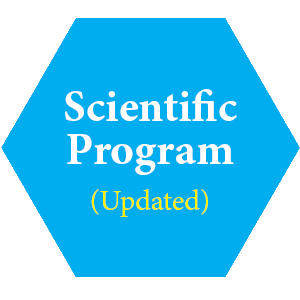
Rafael T Jomar
University of State of Rio de Janeiro, Brazil
Title: Nursing diagnoses in adult/elderly patients undergoing outpatient antineoplastic chemotherapy: A review
Biography
Biography: Rafael T Jomar
Abstract
Statement of the Problem: Knowing that cancer patients are frequently treated with antineoplastic outpatient chemotherapy, nurses working in oncology outpatient services should provide care with a focus on the individual’s needs, using the nursing diagnosis as a tool in the context of nursing process for selecting interventions with the goal of improving patients’ responses to the proposed antineoplastic treatment. Considering the lack of publications on nursing diagnosis in oncology and the fact that knowledge of common nursing diagnoses (NDs) in this area can strengthen the nursing process, in addition to providing oncology nurses with support for decision-making choosing the best interventions, and performing a quality clinical practice, the objective of this study was to search in the scientific literature for NDs identified in adults/seniors undergoing antineoplastic chemotherapy in an outpatient setting. Methodology & Theoretical Orientation: Review of studies published in Portuguese, English, or Spanish which were searched in five electronic databases in March 2016, using the descriptors nursing process, nursing diagnosis, neoplasms, drug therapy and hospital outpatient clinic. Findings: In the four studies selected for review, 40 NDs were identified, namely unbalanced nutrition, less than body requirements, risk for deficient fluid volume, diarrhoea, fatigue, impaired home maintenance, deficient knowledge, disturbed body image, interrupted family processes, ineffective sexuality pattern, anxiety, powerlessness, fear, readiness for enhanced religiosity, risk for infection, impaired dentition, risk for impaired skin integrity, acute pain, and nausea. Conclusion & Significance: Given the scarcity of publications on the diagnostic phase of the oncology nursing process, the 40 NDs identified by the present review point to the complexity of the care provided to patients undergoing chemotherapy in an outpatient setting. If used as a guide for the investigation of NDs among adult/elderly users of oncology outpatient services, the results of this review may contribute to the advancement and improvement of the nursing process.

